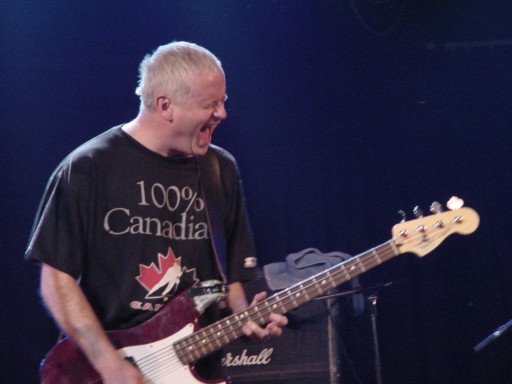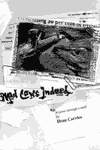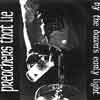Don DeLillo, "Ratner's Star"
Holy hell. I have no fucking idea what this book is about. That's ok, I don't think I'm alone in this. Consider the blurbs on the back. Normally, they put a description on what is the crux of the novel, but not this time. The only things on the back are only blurbs by other people. And the blurbs don't help. Consider this comment:
- "A mind-expanding trip to the finish line, and full of wit and slapstick as well.... The areas of knowledge central to Ratner's Star are astronomy and mathematics. DeLillo develops them brilliantly, so that the expert can wallow while even the layman can splash happily in the shallows or pick up pebbles on the shore."
So, does that tell you anything about this book? No, and the reason is this book doesn't make any sense and nobody is willing to admit that, lest they seem ignorant. So, fine — I'm ignorant. I have no idea what the hell you're talking about, Don. And I don't need to pretend that I do, because frankly, I don't care.
I don't need an interpreter or middleman to what I read. I say that because I'm sure there is some sort of central point that you want us to reach with your novel, but damned if I know what it is. It's only recently that I've been able to listen to others.
That started with my journalism classes. After over a decade of staying outside of the educational system, I enrolled at De Anza Junior College. I wasn't expecting much, and when I went to my first classes I got exactly what I was expecting. The only thing that kept me from walking out was a desire to see if I could survive in the academic world, since I had been told so many times that I couldn't.
Years and years of saying I wanted to go into journalism finally gave way to me actually trying it, and I signed up for a beginner course in news writing. The class was a distance learning course, meaning I did all the work on my own at home. That may sound ideal, but what I was looking for was direction and guidance, something I never had while in school.
My instructor for the course was John Lovas. The first thing I noticed was that he looked exactly like the bass player for NoMeansNo. We has our first meeting, whereupon he explained what textbooks we would need and said that this was a new course, so we would all be working out the kinks.
There were eight of us in the class. If we were to be the test subjects, the course seemed doomed to failure.
Lovas gave us our first assignments, telling us to find a government meeting of any kind and then report on what happened. He seemed distracted, like his mind was somewhere else. The next week I returned with a lame play-by-play of what happened with the city council meeting.
Our group of eight had dwindled to three students. Since it was a distance learning course, it didn't get dropped from lack of attendance, although the administration apparently suggested it. Fact was, the entire journalism department was in trouble. There were almost no courses in the field. The campus paper was entirely volunteer run, and it showed. The administrative student body was ready to cut all funding and ties for publishing costs. Lovas was trying to bring the paper back from the brink of oblivion.
In the meantime, I was lamely trying to be a student for the first time since I was a sophomore in high school. I didn't have a computer and had to write all my papers by hand. I didn't have glasses or contacts, and even sitting in the front row I couldn't see what was written on the board and had to ask instructors to not erase anything so I could stand up at the front after class ended and take any notes I had missed during the lecture.
But during this rocky start, me wondering what the hell I was doing here John Lovas took me under his wing. He looked at my report of a standard city council meeting and helped me find where a story might be fleshed out. That was his strong point — he didn't tell you what to do, he simply talked about what you had written until you realized what angle you could use to make an interesting story. He did that with my piece until I found the actual story buried beneath the lines, a story that meant the entire graduate requirements were changing, affecting the entire first year students with no notification.
After my revisions, he suggested I let the piece be printed in the campus paper. I agreed and after it ran, the administration contacted us and asked for permission to put it in a required textbook for new students.
We lost another student in the class, and the sole other student made it perfectly clear that she wasn't interested in reporter work. Lovas put pressure on me to join the newspaper staff.
I was hesitant, unsure of my writing or reporting skills. I knew I wanted to do it, but wasn't sure I was ready or capable. Working for the paper meant an increased workload with no payoff — you didn't even get course credit. I was working full-time and taking classes at night, giving me a 16-to-18 hour workday. But I agreed to go to a staff meeting, and from there I had a tentative handshake agreement to work on stories that I found, rather than having set assignments.
Lovas seemed a little disappointed in that, as he was obviously trying to build a staff. But he worked closely with me, encouraging me when I did well and patiently offering roundabout suggestions when I was stuck. I kept my eyes open for stories, determined to put some actual news in what was supposed to be a newspaper, rather than the jokey, hokey, insider gossip rag it had become.
Going back into an educational environment could have easily been a failed exercise. After all, I still had the same anti-authoritative stance. I still distrusted people in power. John Lovas saw that and rather than trying to break my belief system, he helped nurture the distrust into reporter skills. When I returned to the newsroom after being thrown out of the security office, he looked prouder than a father whose kid just made the game-winning Grand Slam.
Throughout my educational career until this point, I could count less than three people who I felt truly cared about their students, both as pupils and as people. John Lovas did both, and he became more than a mentor — he became my friend.
And being my friend isn't always easy. After chastising the staff for making a too-easy Nazi comparison in an editorial, he told me about the theory that any heated debate will eventually lead to a Nazi reference. "It's a cop out," he told us in his quiet voice as he studied our faces. "It's supposed to end all debate, but it's nothing more than cheap name-calling."
After that speech, every story I turned in for review had a fake paragraph inserted making a comparison with the Holocaust. I'd sit at the other end of the table, watching as he read silently, red pen in hand. Then he'd come across the paragraph I planted.
"Oh, Goddamn it, what the hell is this with the Nazis?" he say, throwing the paper down. I'd start giggling wildly.
I joined the staff on the newspaper, first as a reporter, then as news editor, and finally as Editor in Chief. When I applied for the position, we both knew I was going to get the position, but he made me go through the motions of the application process. I outlined my plans and goals for the paper, making my number three directive to obtain a monkey in a tuxedo who would serve us drinks. When he called me in for my meeting he sat me down in his office, looking serious and scholarly.
"So," he said, as he looked over my resume, "tell me how you plan to obtain this monkey."
"Well," I answered, "I know you're planning on retiring from the paper, so I was wondering what size tux you wear."
John Lovas died on June 21, 2005 at his home after a short bout with melanoma. He was 65 years-old.
All too often, when a friend or loved one dies, people talk wistfully about how they wish they had the chance to thank them for what the deceased had meant to them. I don't have to do that. When I graduated with honors from De Anza and moved onto a "real" university, I wrote him a long e-mail telling him how much I appreciated his tutelage and guidance. I told him I owed him for all the scholarships, writing awards, and drive in school. I thanked him for believing in me.
The friendship continued long after both he and I left the paper. He went to my fake wedding and brought me a bottle of Grand Marnier. When my book was released he came to the reading and bought himself a copy and another one to donate to the campus library. He had this site listed on his official scholastic Web page as a link for pages of interest, listed above Noam Chomsky.
I wrote Lovas exactly one month before he died, telling him that since I was fleeing the continent he needed to get his act together if he wanted to buy me drinks before I left. He wrote back telling me about the melanoma diagnosis, but said he was perfectly willing to watch me drink, and that he'd buy.
I never did get that drink.
Nazi.
John Lovas
1940 — 2005

Mr. Wrong, NoMeansNo

